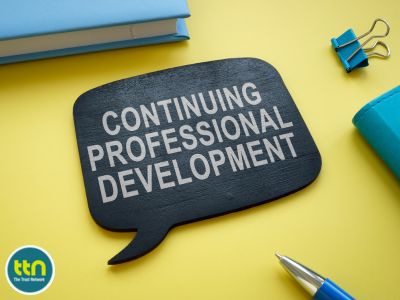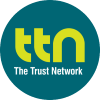Finding suitable and effective continuing professional development can sometimes be a challenge for those managing school estates. However, there is plenty of continuing professional development available, but it may not necessarily come in the form of a specific training course. Attending conferences can be a rich source of information and also inspiration, particularly if you have the opportunity to learn from other segments of the education sector. Higher and further education establishments and universities generally have more funding available than schools to spend on their buildings and the results can be impressive. Not only new builds, but retrofits, both taking into account the need to reduce carbon emissions.

The benefits of attending such conferences are not gained only from attending the seminars, but also in the connections you make on the day. When connecting with other delegates, a good question to ask is, “What challenges are you currently facing?” You may be able to assist each other, or at the very least, empathise. Visiting suppliers exhibiting at conferences can enable you to keep up-to-date with industry innovations. For example, vape sensors for toilets have been available for some time, but now one has been developed that makes a noise when it’s activated, which hopefully will reduce students’ inclinations to vape in toilets.
Being part of a professional network, such as The Trust Network, can be a regular source of continuing professional development. Be sure to ringfence your time to attend conferences and webinars. Some issue will always occur on the day, but unless it’s an emergency situation, ask yourself how you can continue to add value to your organisation unless you invest in your own training and development. When attending webinars, the questions coming up in the chat can be just as useful as the presentation sometimes. If you find someone facing the same challenge as you, message them in the chat and ask to connect outside of the webinar via e-mail.
Of course, getting maximum benefit out of your continuing professional development opportunities will depend upon what you do with the knowledge you’ve gained afterwards. Depending upon the subject, you may feel it appropriate to share it with your premises staff by doing a webinar yourself or at least e-mailing the salient points. Are there follow up actions that you and your staff need to carry out as a result of what you’ve learned? Do you need to change your processes and procedures? If so, how urgently do you need to do this? The key point to remember is that you need to make it a priority to share your knowledge or take action, if possible on the same or the next day.
For a more focussed approach to your continuing professional development, the Department for Education’s Estate Management Competency Framework is a good place to start. The framework is divided into four competency levels together with indicative roles as follows:
| Competency Level 1: Operative | Competency Level 2: Supervisor | Competency Level 3: Manager | Competency Level 4: Strategic |
| Premises assistant | Premises manager | Premises manager | Premises director |
| Caretaker | Office manager | Business manager | Head teacher |
You will note that the role of premises manager occurs at competency levels 2 and 3. The distinction depends upon the size of the premises being managed and the size of the premises team. For example, a large secondary school may have a premises manager, a premises supervisor and several premises assistants. Whereas an academy trust may have an estates director and head of estates as part of the central team, with a premises manager and premises assistants at school level.
The framework details the skills and knowledge required to effectively carry out the following functions at each competency level:
- Strategic estate management
- Planning and organising your estate resources
- Understanding and managing your land and buildings
- Performance management of the estate and sustainability
- Health and safety and premises compliance
- Maintaining your estate
- Managing your estate projects
Start by identifying which level you’re operating at for each of the functions, and then look at what competencies you need to develop to get to the next level. Once you’ve identified these, look for opportunities to gain experience in those competencies. There is a wealth of information available from the Department for Education via their Good Estate Management for Schools (GEMS) suite of documents. Another helpful source of information is the Health & Safety Executive (HSE) which provides e-bulletin updates which you can sign up for on health and safety matters as well as subject specific matters.
Where to find further information

Register Now
Join The Trust Network FREE
